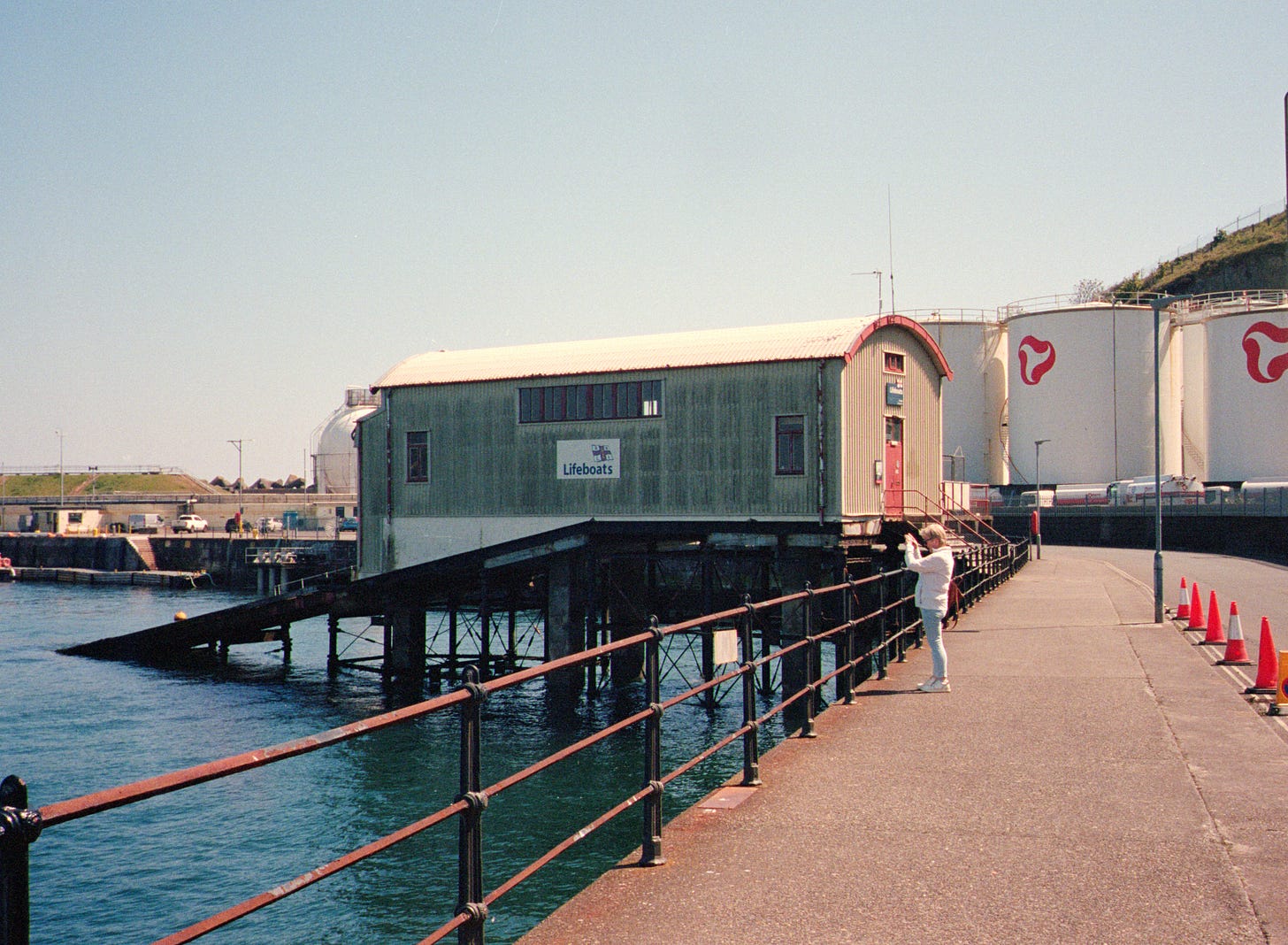How to Win Without Winning
Process saves us from the poverty of our intentions
I have spent a lot of time working on my creative output lately. To what end, I am not sure. There isn’t a destination but there appears to be a road, and I am on it. I’m not necessarily one for New Year’s resolutions, although I see the appeal and there does feel as though there is potential energy in a new year, or week, or day. At the start of 2025, I vowed to be more creative. That sounds vague, which it is. The overriding goal was 30 minutes of creativity per day. I didn’t prescribe what I had to be doing—playing guitar, taking photographs, writing, posting on Instagram—it all counted. I placed an emphasis on photography and releasing my zine.
Placing an emphasis on photography has been working—I started taking photographs much more regularly, my zine is now available to purchase, and I even (admittedly, briefly) picked up a sense of rhythm with posting online. I ought to get back on that, really.
I love process and routine, which seems to be a somewhat divisive opinion when it comes to creativity. With a full-time job and various other commitments, finding the time for creative endeavours isn’t always easy. My solution has been to wake up early and do 45 minutes or so of creative work before the day gets started. Even if the day goes completely west thereafter, I can rest assured that I have at least moved the needle a little. The needle does move slowly, at least for now, but it does move. I’ve written before about my appreciation for James Clear’s Atomic Habits, and James’ assertion that small daily wins add up to something significant in the long run. Systems over goals.
It is uniquely challenging to wake up every day and work for an hour before the day starts, knowing that it might not ever lead to anything. Paul Graham talks about this in his fantastic essay How to Do Great Work:
If you do work that compounds, you'll get exponential growth. Most people who do this do it unconsciously, but it's worth stopping to think about. Learning, for example, is an instance of this phenomenon: the more you learn about something, the easier it is to learn more. Growing an audience is another: the more fans you have, the more new fans they'll bring you.
The trouble with exponential growth is that the curve feels flat in the beginning. It isn't; it's still a wonderful exponential curve. But we can't grasp that intuitively, so we underrate exponential growth in its early stages.
How do you know whether you are at the start of an exponential growth curve or not? Does it matter?
There have been many days where I have been stifled by my own desire to be validated or recognised for what I do. Even with a small newsletter such as this one, the temptation to already be looking at the metrics to gauge what is and is not “successful” is real. The truth is that what I do here on these quiet mornings is for me, first and foremost. It also helps to remember that the personal is the universal. What feels uniquely personal to me is likely something that you have also experienced, which is probably why you are reading this.
So how do you get inspired to do a project such as Forever is Day by Day? By which I mean, when it gets challenging for any number of reasons (money, long waiting times, self-doubt) how do you stay the course and finish? This project would not have happened without the input and camaraderie of Aidan Larned—a designer and strategist in New York. As soon as I linked up with Aidan, I felt that the project could no longer be a complete failure as I had made a new friend, and, better still, I sensed I would learn a lot from him about the process of creating and shipping a print publication. Tim Ferriss refers to this as “winning without winning”—selecting projects based on the skills you learn, friends you make, and potential opportunities that could arise as a result. I’m a big fan of this way of thinking and it will absolutely be how I approach my next project.
Finally, don’t hide behind the big1. Don’t hide behind having aspirations that, whilst well-intentioned, are so cripplingly ambitious that you have no idea where to start. What is the smallest possible version of whatever it is that you want to do? For me, I had wanted to publish a zine or photography book of some sort for a very long time. I suppose the absolute smallest version of that would have been to release a digital zine, which I did consider. But I really wanted to do a print publication, so with the help of a talented and generous new friend, I made the commitment to myself to see it through to the end.
The question now is, what’s next?
Seth Godin on The Tim Ferriss Show, October 29, 2020. https://tim.blog/2020/10/29/seth-godin-the-practice-transcript/
“Process saves us from the poverty of our intentions” is also a goldie from Seth Godin, in his book The Practice.


